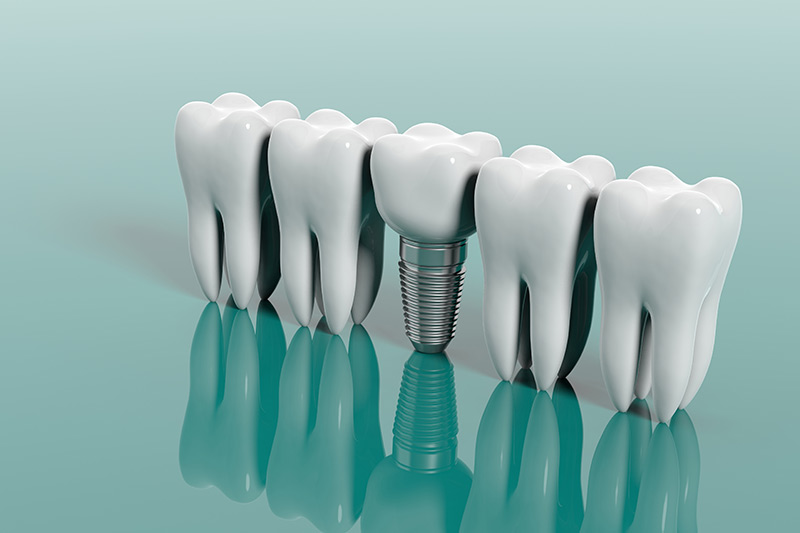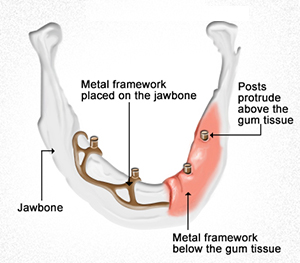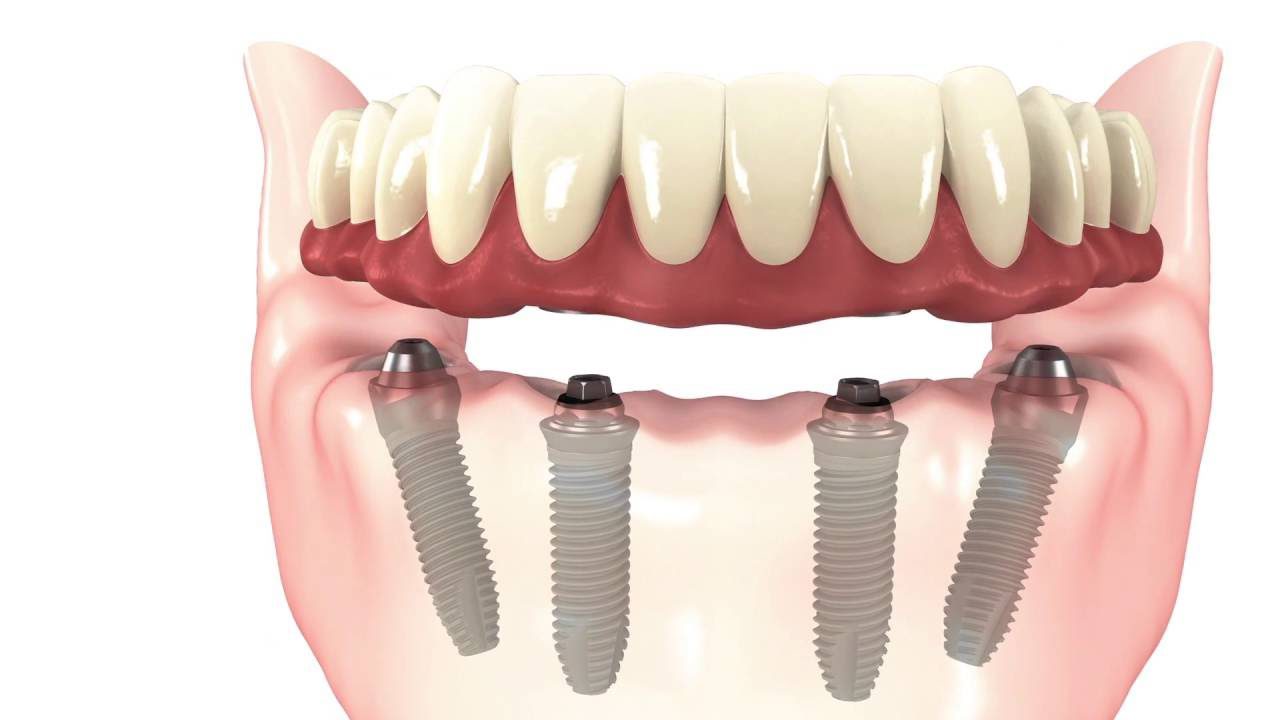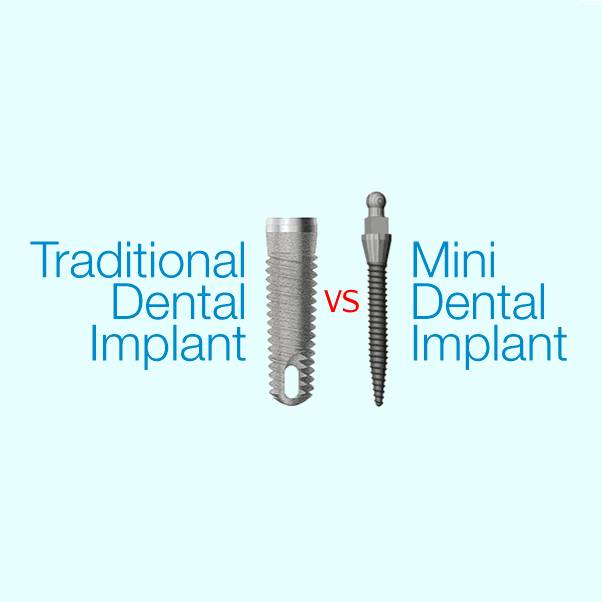Tooth loss is one of the most common dental concerns in older adults; by age 65, nearly one in five people have lost all of their teeth. In the past, those living with tooth loss had limited options, relying on temporary solutions (such as dentures) that reduced their ability to chew and speak. Today, however, a revolutionary new treatment exists for missing teeth: Dental implants. Unlike dentures, dental implants are a permanent restoration that looks, feels, and functions like the patient’s natural teeth. Replacing missing teeth with dental implants prevents jawbone deterioration and premature facial aging, among other issues.
Several types of dental implants are available to meet the needs of different patients. While endosteal implants are the most common, subperiosteal and zygomatic implants provide solutions for patients with advanced bone loss. Other options, such as immediate load implants, are designed to expedite the dental implant procedure for patients seeking greater convenience.
Below, we’ll review six different types of dental implants and explain their uses:
1. Endosteal Implants

Endosteal implants, which are attached to a tiny surgical post in the jawbone, are the default choice for many patients. Endosteal implants are popular because they’re extremely durable and offer excellent versatility; they can be used to replace a single missing tooth or to support bridges or complete permanent dentures. Unlike traditional dental bridges, endosteal implants don’t require the support of adjacent teeth, making them a minimally invasive restoration.
With proper care, endosteal implants can last 15-25 years or longer, require little maintenance, and have a very low rate of complications. In many cases, one set of endosteal dental implants will last the rest of the patient’s lifetime.
The only limitation of endosteal implants is that patients must have a healthy jawbone to undergo this procedure; as such, endosteal implants should be placed within six months of tooth extraction. The endosteal implant procedure is also time-consuming and complex, making these implants less suitable for patients with time or budget constraints.
2. Subperiosteal Implants

For patients with jawbone atrophy, subperiosteal implants provide a stable, durable alternative to endosteal implants. Unlike endosteal implants, which are inserted directly into the jawbone, subperiosteal implants rest on top of the jawbone, supported by the tissues of the periosteum (jawbone membrane). As such, they’re an excellent choice for patients with insufficient jawbone density for other types of dental implants, as they don’t require bone grafting.
Similar to endosteal implants, subperiosteal implants look and function like natural teeth once the procedure is complete. They’re easy to care for, requiring only standard oral hygiene practices, and can last 15 years or longer. However, subperiosteal implants require more extensive surgery and have a higher risk of infection than endosteal implants, so they’re typically only recommended for patients who aren’t a good candidate for standard dental implants.
3. Zygomatic Implants

Zygomatic implants are an uncommon type of dental implant anchored in the cheekbone (zygomatic arch) rather than the jawbone. To support zygomatic implants, dental surgeons insert multiple small metal posts into the upper jaw, with the longest posts being anchored in the zygoma bone. Because the zygoma bone is very dense, it provides an excellent foundation for dental implants, ensuring zygomatic implants are durable, stable, and long-lasting.
Zygomatic implants are used in rare cases where the patient has severe bone loss in the upper jaw and does not want to undergo bone grafting (or is not a good candidate for the bone grafting procedure). By preventing the need for bone grafting, zygomatic implants offer suitable candidates faster recovery; on average, they shorten total treatment time to three months (versus about nine months for implants with bone grafting). Nonetheless, patients should be aware that the zygomatic implant procedure is complex and requires significant expertise. To prevent infection, nerve damage, sinus issues, and other potential complications, patients should choose an experienced, highly-trained oral surgeon when opting for zygomatic implants.
4. All-on-4 and All-on-6 Implants

For patients with complete edentulism (tooth loss), all-on-4 and all-on-6 implants offer convenient dental restoration. In this procedure, a permanent denture known as a full-arch fixed-implant bridge is anchored to four or six strategically placed dental implants. Unlike temporary dentures, these fixed dentures will not shift when the patient chews or speaks, and they can be cared for like natural teeth. At the same time, they’re more cost-effective than other types of dental implants and are suitable for patients with mild to moderate jawbone atrophy without requiring a bone graft.
In many cases, all-on-4 and all-on-6 implants can be placed in a single day, making them one of the most convenient types of dental implants. Like other dental implants, they are stable and long-lasting; however, patients should be advised that fixed dentures are often thicker than natural teeth. While most patients adjust to this additional thickness in time, some may prefer the more natural feel of traditional dental implants.
5. Mini Dental Implants

Mini dental implants are a smaller version of traditional implants that may be suitable for certain patients who lack adequate bone density for endosteal implants. While both mini and standard dental implants utilize a titanium post inserted into the jawbone, the post used for mini implants is much smaller, averaging just 2 mm (versus 3-5 mm for standard implants). Like traditional implants, mini dental implants can be used to replace a single missing tooth or to support bridges or fixed dentures.
Because the post used to place mini dental implants is very small, this procedure is minimally invasive, low-cost, and has a short healing time. Mini-implant insertion is typically completed in one day, and recovery takes just a few weeks. The only downside to mini implants is that they’re less durable than traditional dental implants and may require replacement after 6-9 years.
6. Immediate Load Implants
Also known as same-day implants, immediate load implants involve placing prosthetic teeth within 48 hours of implant insertion. This process differs from conventional dental implants, where prosthetic teeth are placed 4-6 months after the initial implants. Immediate load implants offer a reduced total treatment time and considerable aesthetic benefits, as patients do not have to live with tooth gaps for an extended period. In terms of overall function and longevity, immediate load implants perform similarly to delayed load implants and have a very high success rate (97-100% in suitable candidates). They can be used to replace one or more missing teeth or to support a full-fixed denture.
To be eligible for immediate load dental implants, patients must have excellent oral hygiene habits, no history of bruxism (tooth grinding), and suitable jawbone density. Patients should also be prepared to modify their eating habits during the healing process to avoid placing excessive force on their implants, which could damage the process of bone fusion (osseointegration) and cause the implant to fail.
Restore Your Smile With the Perfect Dental Implants from Dr. Dalmao
Finding the best dental implants depends on multiple factors, including the patient’s bone and gum health, the number of teeth needing replacement, and individual preferences. Before you commit to getting dental implants, it’s therefore crucial to discuss your options with a skilled, experienced oral surgeon.
If you’re in the Mississauga or Greater Toronto Area, we can help you understand the different types of dental implants and find the perfect fit for your lifestyle and budget. Schedule a consultation with Dr. Dalmao today to begin exploring your treatment options for a beautiful, healthy smile.
